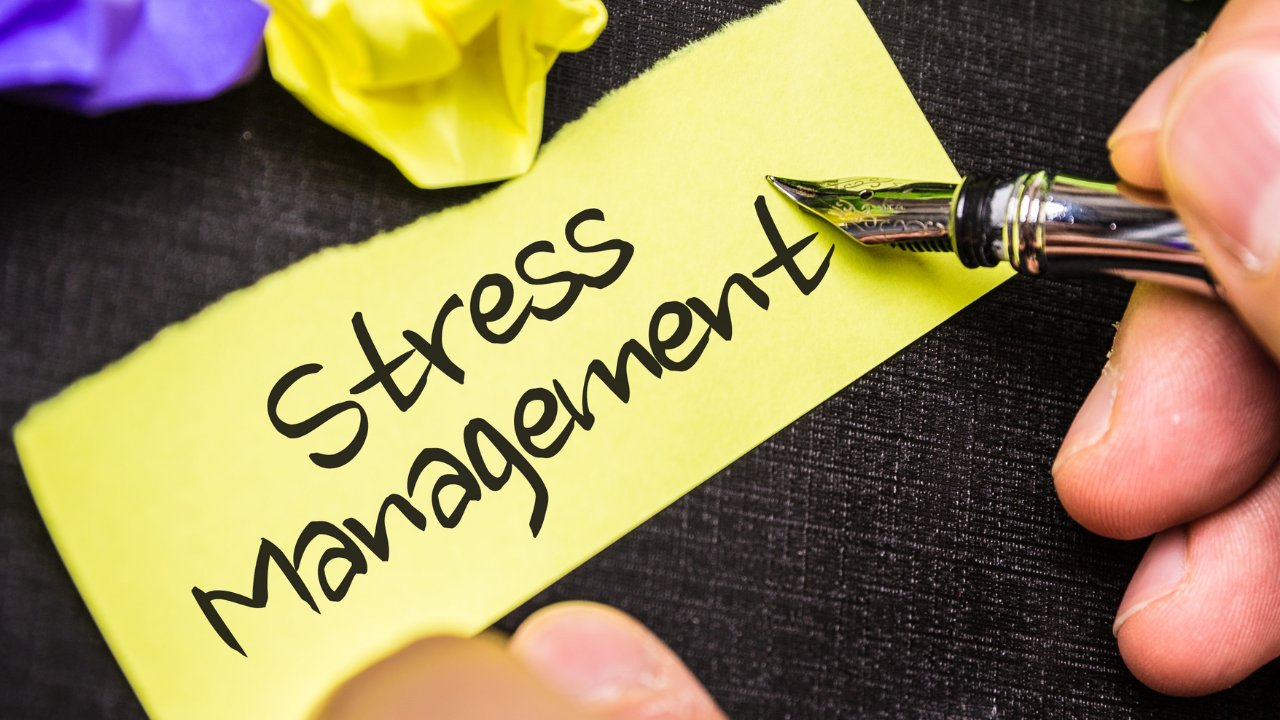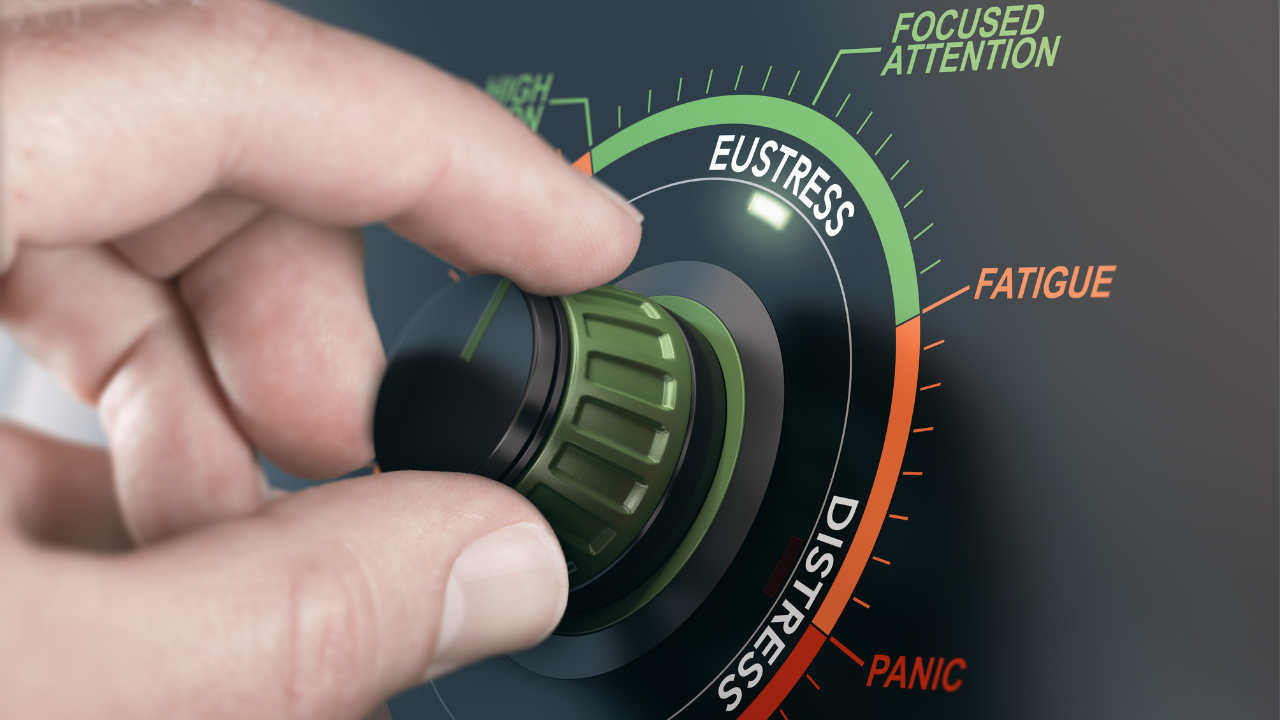Managing Stress to Bring Out Your Best

Most of you must have stumbled upon this article because you want to learn how to manage stress best. But before you proceed on the how, why don’t you take this short quiz to assess your ability to manage your stress.
Stress Management Quiz.

Do you think that stress happens outside your control?
Have you developed somatic (bodily) responses to stress like anxiety, tension, nervous laughter, dry mouth, moodiness, irritability?
When faced with challenges, do you become forgetful, find it difficult to focus, and think clearly?
Do you tend to be worried about the future?
Do you tend to act impulsively?
Do you tolerate frustration poorly, display unpredictable (at times explosive) and abusive behaviour that can sometimes be self-defeating?
If you answered a YES to 3 or more of these questions, you might have a Stress Management problem.
The Impact of Stress

Stress is your body's reaction to a sudden change in your living circumstances or circumstances in general.
Stress is inevitable. With the demands of today’s fast-paced and competitive business world—the long hours, the unreasonable expectations from the higher-ups, and uncertain job security – one can’t help but experience stress from time to time.
However, not managing your stress well can negatively impact your mental, physical, emotional, and even relational health. Minor problems turn into major ones as stress overpowers the capacity of the body and the mind to cope. Relationship problems become physical problems as stress seriously affects your health. A simple situation can become complex because stressing out robs you of being able to think well when you need to.
Numerous studies indicate that persistent stress contributes to physical illness, ranging from high blood pressure and cardiovascular disease to more susceptibility to infections and chronic weariness. Stress, if left untreated, can lead to mental health problems such as anxiety or depression.
Stress-related illnesses cause you to take more sick days and personal leave, and we are less productive at work.
Stress can indeed be a significant problem. But do you know that the 'stress' that ravages you today is the same 'stress' that enabled our ancestors to survive in their hostile environment? This is the body's natural reaction to external threats. It elevates the hormone level to increase heart rate and blood pressure and boost energy to deal with the immediate danger or flee. But the threats to our survival have now taken different forms. Wild animals that threatened man before are now locked up in zoos or protected in reservation areas. Man is now confronted with bills to pay, taking care of children, deadlines to meet, relationships to maintain, among many other everyday challenges.
The irony is the very thing that is supposed to give man the capacity to protect himself is now what he needs to defend himself from. But studies have proven that it's not stress per se that eats up man, but it's the way man reacts to it. According to the “father” of stress research, Dr. Hans Selye, “It’s not stress that kills us, it is our reaction to it…. Man should not try to avoid stress any more than he would shun food, love, or exercise.”
The Benefits of Effective Stress Management

Handling stress well requires the use of your emotional intelligence. Emotional intelligence gives you the capacity to manage your reactions to external threats.
If you have high emotional intelligence, you will have the competency to manage your stress well.
You are:
- Sensitive to your feelings and aware of when your stress level starts to rise.
- Realistic. You accept that stress is part of life such that you can calm yourself when it arises and deal with it productively.
- In control when stressful events arise. Doing so enables you to keep calm, think clearly, and handle the situation adequately, such as improving it.
- Assertive when you need to be, so you maintain healthy boundaries. You know when to say yes and no.
- Highly tolerable to setbacks and frustrations. You know which situations are worth their effort.
Developing Stress Management Strategies

It is crucial to hone your capacity to manage stress well. Otherwise, it will hinder you from living everyday lives. This requires tapping into your emotional intelligence. Here are some developmental tips to get you started:
Focus on the other side of stress.

To most people, the word stress often comes with a negative connotation. That is why when confronted with stress, most people cower or avoid them. However, doing so can eventually create more stress.
Kelly McGonigal, a lecturer and program developer at Stanford Center for Compassion and Altruism Research and Education, has this to say about stress:
“Stress isn’t always harmful. Once you appreciate that going through stress makes you better at it, it can be easier to face each new challenge.”
Learn to embrace stress. Look at the positive side of it. Accept that stress is a part of daily life and consider it an opportunity to mature.
Be conscious of your reactions. Choose a healthier response.

Sometimes, when stressful situations confront you, you react negatively. You become angry, sad, upset, or depressed. Instead of responding negatively, you can choose to appreciate the positive aspects of stress.
For example, when confronted with a stressful situation, instead of being angry or frustrated, choose to see it as something that will hone and strengthen your character, making you more motivated in facing the situation.
Choosing to appreciate the positive aspects of stress does not mean denying that stress may be damaging. It's about attempting to regulate your thinking, to feel less overwhelmed and do not despair about how hectic your life is.
Expect and be ready for changes; tolerate uncertainty.

Be ready for change. Accept that change is always a part of life. Having this kind of acceptance will help you avoid being stressed out or somehow ease your stress when change comes. The reason being is that you have already prepared yourself for this change.
Practice Self-Care.

Practicing self-care helps you manage your stress as it makes you feel better – physically, psychologically, and emotionally. Maintain a healthy style by eating properly, getting enough sleep, and getting adequate exercise. Also, try to find a relaxation technique that works for you and practice it regularly.
Try not to control everyone and everything; assume control only over what’s within your control.

Trying to control everyone and everything will make you stressed and frustrated. It would be best if you accepted that you have no control over many things in life.
Therefore, when you find yourself worrying, take a moment to consider the areas over which you have control. You cannot avoid a storm, but you can be prepared for it. You have no control over how others behave, but you do have control over how you react.
Recognise that there are moments when all you have control over is your effort and attitude. You'll be considerably more effective if you focus your energy on the things you can control.
Speak up on your own behalf.

There's no need to accept abusive or bullying behaviour.
There may be times when other people cause our stress. Although you may not be able to control their feelings toward you, you can control your response to their behaviour. Instead of cowering in one corner and letting the stress of being with that person eat you up, speak up. Do not allow other people to abuse and bully you.
Bullying may not be intentional because the individual in question may be unaware of how their actions are hurting you. If possible, talk to them directly, but plan what you're going to say ahead of time. Describe what's been going on and why you're upset about it. Maintain your cool and be polite.
If you are uncomfortable talking to them, have someone else do it for you.
If you cannot resolve the issue informally, you should seek help.
Seek support from others

Seeking emotional support is a critical protective aspect in dealing with life's challenges. Studies show that emotional support reduces the effects of stress, and the findings are quite startling. Not only can social support make you feel less stressed, but it can also enhance your health and lower your chance of premature death.
According to a 2015 poll, the average stress level for those who received emotional support was 5/10, compared to 6.3 for those who did not receive such assistance. However, keep in mind that you should seek out people you can rely on to avoid disappointment or situations that might make you feel even worse.
If you are anxious and have no one to turn to, a certified coach or a psychologist can assist you. Coaches and psychologists, as experts in human behaviour, can assist you in developing stress management strategies and social skills.
Indeed, developing the competency of effective Stress Management can make stress bring out your best!
We Are Here to Help
At People Builders, we have a team of expert trainers and coaches who can help you in building you and your team’s Emotional Intelligence. Contact us today for a quick chat to see how we can partner with you to train and coach you and your team.
If you are interested in becoming certified to be a trainer and coach in Social and Emotional Intelligence, Applied Neuroscience, or Extended DISC, go to our People Builders Institute website.
Let's start a conversation!
Contact us to see how we can partner with you to bring out the best in your people.
We hate SPAM. We will never sell your information, for any reason.



